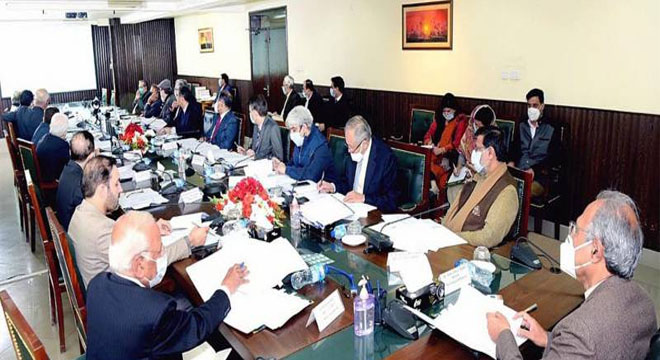ISLAMABAD – Federal Board of Revenue (FBR)’s Policy Board on Thursday decided to establish ‘Tax Policy Unit’ to work out policy recommendations for domestic tax collection on the lines of the National Tariff Commission, which operates under the Ministry of Commerce.
Tax Policy Unit would be under the administrative control of the Finance Division. A new setup would be created that will include members from FBR and also engage fiscal and economic experts from academia, think tanks and private sector to present holistic proposals for mobilising revenue generation with greater autonomy.
The establishment of Tax Policy Unit was approved in 5th meeting of the FBR Policy Board at FBR, which was chaired by Federal Minister for Finance and Revenue, Dr. Abdul Hafeez Shaikh yesterday. The FBR made a presentation regarding establishment of Tax Policy Unit in accordance with the decision of the Cabinet dated 29th November, 2018. Members of the Policy Board gave a valuable input highlighting the advantages of keeping tax policy function independent of administrative function.
The FBR’s Technical Committee apprised the Policy Board about the measures taken to identify anomalies and simplify the taxation system for better understanding of the business community. FBR requested to include senior representatives from the Ministry of Commerce and Ministry of Industries & Production for better coordination and effective policy making in this regard.
Chairman, Complaint Oversight Committee (COC) briefed the Policy Board about the working of a newly developed complaint portal which is currently running on trial basis. The complaint resolution system is designed to facilitate businessmen, traders, small and medium enterprises (SMEs) and large tax payers. All complaints can be filed at one place. SOPs for complaint resolution and oversight by COC are being finalized and system would be formally launched soon. The chair directed to disseminate relevant information about the working of complaint registration mechanism and ensure the contact details are readily available for public consumption.
The finance minister further directed FBR to expedite the process of Income Tax refunds of less than Rs.50 million to uphold commitment of the government to facilitate tax payers.
MEETING OF EAG
Meanwhile, in a separate development, Economic Advisory Group (EAG), an independent group of economists, policy analysts, financial experts, and academics to deliberate on Pakistan’s economic policies, held its second meeting yesterday to deliberate on proposals pertaining to the tax policy. Members were briefed by Dr Vaqar Ahmad and Dr. Ahmed Jamal Pirzada on the objectives and the outline of the tax policy document currently under works by the EAG. EAG called for ‘Fair and Just Taxation.’
EAG members mutually agreed on the important role a country’s tax system can play in both stalling and promoting economic growth. The political economy issues which limit the state’s ability to tax the super-rich, and egalitarian concerns behind insulating lower segments of society from direct taxes also came under discussion. Some members pointed to how the aforementioned constraints result in the tax burden falling on the few who cannot escape the tax net. Others pointed to how this has incentivised excessive reliance on indirect taxes thus making the tax system regressive, in contrast to what the policymakers set out to achieve.
When discussing the way forward, EAG emphasised that the tax system should be seen in a holistic manner where linkages between tax policy, tax administration, and tax culture are appreciated. Members pointed to how a complex tax policy can make tax administration ineffective. A complex tax policy not only increases the compliance cost for potential taxpayers but also makes the auditing process less transparent and open to corruption. This further aids in making the dispute resolution process more cumbersome, resulting in lost time and revenue for the exchequer. The lack of appreciation of these interactions between tax policy and tax administration has contributed towards undermining the tax culture in Pakistan.
In light of this discussion, the EAG decided to base its approach towards improving the tax system on five key principles taxes should be easy to understand, tax policy should be easily enforceable, taxes should encourage economic activity, taxes should correct for structural inequality and market failures and taxes should be proportionate to ability to pay
Members of the group propounded to have a tax policy that is fair, easy to comprehend and enforceable, and promotes tax culture. It should be conducive to economic growth, while correcting for structural inequalities and market failures.
The members expressed that in order to change the structure of taxation, it is imperative to set medium- to long-term goals in the proposal. It was highlighted that the proposal will be formulated keeping in view the trade-offs of political economy of taxation. The proposal is expected to be presented to relevant authorities as one of the pre-budget proposals by the end of March.
Follow the PNI Facebook page for the latest news and updates.









